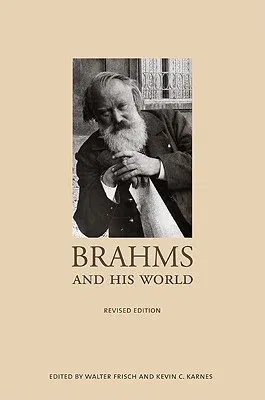Unlike some recent volumes on Brahms, which have served mainly to bring
together miscellaneous papers read at conferences, this collection seeks
to locate the composer more directly in the context of his personal,
professional, and musical environment.The volume consists of three
parts. In Part I essays by six prominent scholars explore different
aspects of Brahms's relationship to his world. The topics include time,
memory, and concert life in Brahms's Vienna (Leon Botstein); Brahms's
complex personality, studied by a leading psychoanalyst (Peter Ostwald,
M.D.); Brahms and Clara Schumann (Nancy B. Reich); Brahms and the New
German School (David Brodbeck); Brahms's pianos (George S. Bozarth and
Stephen H. Brady); and Brahmsian influences on his contemporaries
(Walter Frisch).Part II presents commentary on Brahms's music culled
from some of the most important critics of the nineteenth and early
twentieth centuries. Most of this material has never appeared in English
before. Included are excerpts from the earliest published survey of
Brahms's works, written in 1862 by Adolf Schubring; reviews by the
powerful Viennese critic Eduard Hanslick; analyses of the symphonies by
Hermann Kretschmar; and an analysis of Joseph Joachim's Hungarian
Concerto by Donald F. Tovey.Part III offers substantial portions from
memoirs about Brahms written by contemporaries who in themselves were
leading musical figures. These excerpts, most translated into English
for the first time, are taken from Hanslick and from the composers
Alexander Zemlinsky, Karl Weigl, and Gustav Jenner, the latter being
Brahms's only private pupil in composition.An appendix provides a list
of all known musical works dedicated toBrahms.Brahms and His World
should prove a valuable reader or source book for anyone interested in
the composer.

